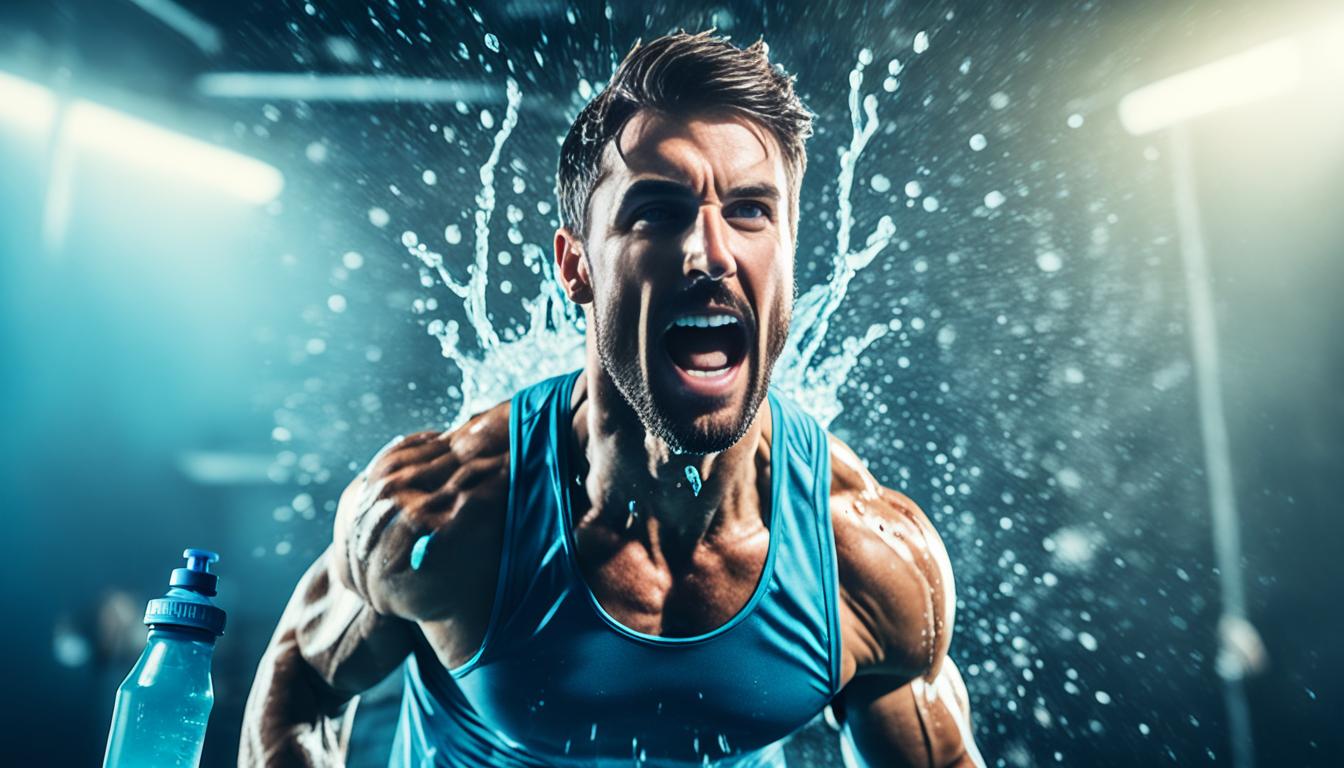In order to get the most out of your workout sessions, it’s important to prioritize proper hydration. Staying hydrated during workouts is essential for maintaining peak performance, boosting endurance, and staying refreshed throughout your exercise routine. No matter what type of workout you engage in, whether it’s running, weightlifting, or yoga, maintaining adequate hydration levels is key.
In this article, we will explore the importance of staying hydrated during workouts and provide you with essential tips and strategies to ensure optimal hydration. We will cover how dehydration can negatively impact your performance, hinder your progress, and increase the risk of injuries. Additionally, we will discuss the benefits of adequate hydration, such as improved muscle function, enhanced energy levels, and better overall physical performance.
Importance of Hydration During Workouts
Staying hydrated during workouts is essential for optimizing your performance and achieving your fitness goals. Dehydration not only hinders your progress but can also increase the risk of injuries. It is crucial to understand the importance of maintaining adequate hydration before, during, and after your exercise sessions.
Dehydration can have a negative impact on your physical performance. When you’re dehydrated, your body’s ability to regulate temperature and deliver oxygen to your muscles is compromised, leading to decreased endurance and strength. This can result in reduced workout intensity and overall performance.
Proper hydration is also vital for muscle function. Water is essential for maintaining muscle tone and lubricating joints. When you’re adequately hydrated, your muscles are able to contract efficiently, allowing for better movement and power during workouts.
In addition to improving muscle function, staying hydrated during workouts can enhance your energy levels. Dehydration can leave you feeling fatigued, making it challenging to sustain your workout routine. By drinking enough fluids, you ensure that your body has the energy it needs to perform at its best.
Furthermore, staying hydrated promotes better overall physical performance. It helps prevent dizziness, lightheadedness, and muscle cramps, allowing you to focus on your exercises and maximize your efforts. Adequate hydration also aids in the transportation of nutrients to your cells, promoting faster recovery and reducing the risk of post-workout soreness.
Remember, every individual’s hydration needs may vary depending on factors such as body weight, climate, and exercise intensity. It’s essential to listen to your body and drink fluids regularly throughout your workouts to maintain optimal hydration levels.
Hydration Before, During, and After Workouts
In order to stay hydrated during workouts, it’s essential to have a comprehensive approach that covers hydration before, during, and after your exercise sessions. By following these specific strategies, you can optimize your hydration levels and enhance your performance.
Pre-Workout Hydration
Prior to starting your workout, it’s important to ensure that you are properly hydrated. This means drinking enough fluids and consuming hydrating foods that can contribute to your overall hydration levels. Aim to drink water or other hydrating beverages at least 2 hours before your workout. Additionally, incorporate foods with high water content, such as watermelon or cucumber, into your pre-workout meal or snack.
Hydration During Workouts
During your workout, it’s crucial to continue replenishing your fluids to stay hydrated. Sipping water regularly, especially during intense exercise sessions, helps maintain your hydration levels and supports optimal performance. Remember to listen to your body and drink when you feel thirsty. To assist with maintaining hydration throughout your workout, consider keeping a water bottle within reach and taking frequent sips between exercises.
Post-Workout Hydration
After completing your workout, it’s essential to replenish the fluids and electrolytes that have been lost during exercise. This aids in muscle recovery and rehydration. Make sure to drink fluids, such as water or a sports drink, immediately after your workout. Additionally, consuming foods rich in electrolytes, such as bananas or coconut water, can help restore the electrolyte balance in your body.
By following these hydration strategies before, during, and after your workouts, you can ensure that your body stays adequately hydrated and optimize your performance levels.
Choosing the Right Hydration Methods
When it comes to staying hydrated during workouts, choosing the right methods can make a significant difference in your performance and overall well-being. In this section, we will explore the various hydration options and their pros and cons, helping you make informed decisions for optimal results.
One of the simplest and most accessible ways to hydrate is by drinking plain water. It is calorie-free, readily available, and can effectively replenish fluids lost during exercise. However, for intense or prolonged workouts, it may be beneficial to consider sports drinks or electrolyte-enhanced beverages.

Sports drinks contain electrolytes such as sodium and potassium, which help replace the minerals lost through sweat. They also provide carbohydrates to fuel your muscles during extended workouts. These beverages are particularly useful for high-intensity activities lasting more than 60 minutes, as they can help maintain electrolyte balance and sustain energy levels.
Electrolyte-enhanced beverages, on the other hand, offer a convenient way to replenish both fluids and electrolytes. They come in various flavors and often contain additional nutrients like vitamins and antioxidants. These can be useful for individuals who prefer enhanced taste or have specific dietary requirements.
It’s important to note that different people have different hydration needs, and listening to your body’s thirst cues is crucial. Factors such as the duration and intensity of your workouts, as well as environmental conditions, can impact your fluid requirements. Customizing your hydration approach based on these factors will maximize your performance and prevent dehydration.
Remember, staying hydrated during workouts is not a one-size-fits-all approach. Experiment with different hydration methods and observe how your body responds. By understanding your hydration needs and tailoring your approach accordingly, you can optimize your workouts and reach your fitness goals more effectively.
Signs and Symptoms of Dehydration During Workouts
Staying hydrated during workouts is essential to maintain optimal performance and prevent the negative effects of dehydration. Recognizing the signs and symptoms of dehydration is crucial in ensuring that you address it promptly.
Excessive thirst is one of the early warning signs of dehydration. If you feel extremely thirsty during your workout, it’s a clear indication that your body is in need of fluids. Dry mouth is another symptom to watch out for. When your mouth feels dry, it’s a sign that you may be dehydrated and in need of replenishment.
Fatigue is also a common symptom of dehydration during workouts. If you find yourself feeling unusually tired or lacking energy during your exercise session, it could be a result of inadequate hydration. Dehydration can impair muscle function, making your workout feel more difficult than it should be.
Addressing Dehydration Promptly
It’s crucial to address dehydration promptly to avoid any negative impact on your workout performance. If you experience any of these signs and symptoms, pause your workout and take a break. Find a cool and shaded area, and drink fluids to rehydrate your body. Water is generally the best choice, but electrolyte-rich drinks can also help replenish lost fluids and minerals.
Remember, staying hydrated during workouts is not only important for your physical performance but also for your overall well-being. By recognizing the signs and symptoms of dehydration and taking the necessary steps to address it, you can ensure that you stay energized and perform at your best during every workout.
Additional Tips for Optimal Hydration
Proper hydration is essential for maximizing your performance and getting the most out of your workouts. In addition to the strategies discussed earlier, here are some additional tips and tricks to help you stay hydrated and perform at your best.
1. Monitor Urine Color
One simple way to gauge your hydration levels is by monitoring the color of your urine. Clear or pale yellow urine generally indicates that you are well-hydrated, while darker urine may be a sign of dehydration. Aim for a light, straw-like color to ensure optimal hydration.
2. Incorporate Hydrating Foods
In addition to drinking fluids, you can also enhance your hydration by incorporating hydrating foods into your pre- and post-workout meals. Foods with high water content, such as watermelon, cucumbers, and oranges, can contribute to your overall fluid intake and help keep you hydrated.
3. Use Hydration Tracking Apps or Devices
If you prefer a more precise way of monitoring your fluid intake, you can consider using hydration tracking apps or devices. These tools can help you keep track of your water intake and remind you to drink at regular intervals, ensuring that you stay properly hydrated during your workouts.
By implementing these additional tips and tricks, you can take your hydration game to the next level and optimize your performance during workouts. Remember, staying hydrated is not only crucial for your physical well-being but also for achieving your fitness goals.
Conclusion
Staying hydrated during workouts is essential for optimizing your performance and achieving your fitness goals. Through the tips and strategies discussed in this article, you now have the knowledge to prioritize hydration and reap the benefits it offers.
By maintaining proper hydration before, during, and after your workouts, you can enhance muscle function, increase energy levels, and improve overall physical performance. Hydration not only helps you stay refreshed, but it also aids in muscle recovery and reduces the risk of injuries.
Choosing the right hydration methods based on the duration and intensity of your workouts is vital. Whether it’s plain water, sports drinks, or electrolyte-enhanced beverages, listen to your body’s thirst cues and customize your approach accordingly.
Don’t ignore the signs and symptoms of dehydration during workouts. Excessive thirst, dry mouth, and fatigue are early warning signs that require prompt attention. By recognizing these signals and addressing dehydration promptly, you can ensure that your workout performance remains unaffected.
Incorporating additional tips, such as monitoring your urine color and including hydrating foods in your meals, can also contribute to optimal hydration. Utilizing hydration tracking apps or devices can help you stay accountable and meet your fluid intake goals.
Remember, staying hydrated is not a one-time effort but an ongoing commitment. By prioritizing hydration and following the tips provided, you can unlock your peak performance, boost endurance, and stay refreshed throughout your workout sessions. Keep hydrating, and enjoy the benefits it brings to your fitness journey!






